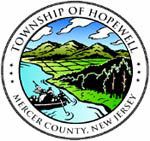By Frank Mustac, Contributor
An ordinance establishing new tree removal and forest management guidelines was passed unanimously by the Township Committee at its most recent public meeting.
Township Administrator Paul Pogorzelski said the changes deal primarily with utility line construction, including new provisions to require performance and maintenance bonds to guarantee the implementation of “restoration plans” by utility companies.
According to the amended ordinance, the township will require that “when a tree replacement plan is proposed as part of residential construction, compliance with the tree replacement plan shall be required prior to release of the final certificate of occupancy.”
When a non-residential or utility construction project requires that trees be removed, the township could require that “a performance bond guaranteeing compliance with the tree replacement plan” be provided to the municipality.
“We sort of have a (broad) exemption for utilities, and one of the things we have realized is that the intention of the original ordinance was really not to just allow for any utility to come in and begin to clear-cut areas,” Mr. Pogorzelski said.
The original intent, he said, was to recognize “existing utilities in the area of a cut they’ve already made” and changes that were already made to the forest.
“So what we’ve done is really revamp that section of the ordinance so that it still recognizes more clearly existing utilities, but then puts a responsibility for new utilities that instead of just sort of clear-cutting, they have an obligation to comply with the ordinance as would any other property owner,” the administrator said.
When the ordinance was initially introduced on Aug. 22, Mr. Pogorzelski said “it makes sense when you are going through major forested (areas) that there be a protective measure” for tree removal, regardless of who was doing the cutting.
Prior to the committee’s vote on Sept. 12, Mike Pisauro, policy director with the environmental advocacy group the Stony Brook-Millstone Watershed Association, thanked the municipality for its commitment to put such policies on the books.
Municipal ordinances in general, he said, are important for protecting water and “these amendments update that.”
“Water quality is vital. We’ve recognized that since the 1970s with the federal Clean Water Act, which calls for the restoration of degraded water quality,” he said, explaining that great strides have been made toward that end, but more needs to be done.
Offering some statistics from the New Jersey Department of Environmental Protection (DEP), Mr. Pisauro told officials that a 2014 study revealed that “98 percent of our waters (did) not meet water quality standards.”
The vast majority of what he described as “non-conforming source pollution” finds its way into streams and rivers by way a storm water runoff.
The “best way to stop that and control that problem” is with “vegetation and trees,” he said.
“That’s why this is so important and so integral to our obligation to the Clean Water Act and storm water management standard requirements that New Jersey has enacted,” he said. “Each municipality has an obligation under those statutes to address storm water runoff.”

